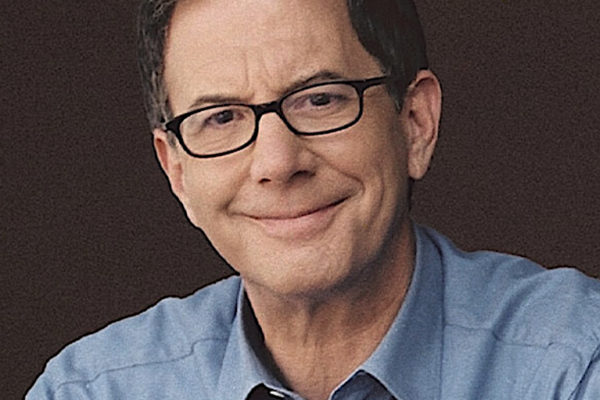
Dr. Relly Nadler: We are so glad you are with us, today. Dr Cathy Greenberg and myself are happy to present Why Cope When You Can Heal? Introducing Surgical Empathy as we talk with Dr. Mark Goulston, today.
Dr. Cathy Greenberg: Before we jump in with Mark, I’m going to say just a few words about his new book, Why Cope When You Could Heal? Introducing Surgical Empathy, which Mark has been using for quite some time. For those of you who don’t know, Mark introduced the world, and of course, he is now using it in his new book, surgical empathy as an approach, which he invented and used for more than twenty-five years with suicidal patients.
The good news is none of them dying by suicide.
It is something he has now expanded to individuals who are suffering and who may suffer yet with forms of PSTD, that helps them to finally begin to heal.
Dr. Goulston is also the best-selling author of eight more books and hosts a highly rated podcast, My Wakeup Call, and the weekly LinkedIn live show called No Strings Attached.
He has been featured, of course, on all the top news media outlets. Let’s say ABC, NBC, CNN, Oprah, Fortune Magazine’s vast company, and, of course, PBS.
When you get a chance and you have some free mind space following today’s show, you can find out more about him at www.markgoulston.com and his new book website, www.whycopewhenyoucanheal.com.
Mark, welcome to the show.
Dr. Mark Goulston: Well, thank you. One of the great things when people say nice things about you is it gives you something to live up to. By the way, I just found out that Why Cope When You Can Heal? Just went on sale for $9.99 which is close to half off at www.amazon.com, that’s Amazon US, so I’m not sure if it will be that way in other Amazons. So, I hope people will check that out, or check out the website.
But it is good to be on with you. As you were saying, one of the things I focus on and teach in the world is focusing on what people are listening for. I think people on this show are listening for exactly what you said. They are looking for tips to make their lives better, be more successful, be calmer, be centered, and they are looking for ways – how do I lessen the stress I’m feeling and then how do I lessen the stress in my people, in my family.
So, I hope we will be able to deliver some useful tips that they can use today.
Dr. Relly Nadler: I’m sure we will, Mark. I mentioned before the show, I got your book just because I have also been working with physicians and it’s a great resource. We want to tap into some of your tips.
So, tell us a little bit about your background and a little bit about this book that you did with Dr. Diana Hendel, kind of how that came about.
Dr. Mark Goulston: So, I’m a psychiatrist and one of my mentors was a fellow named Dr. Ed Shneidman. He is a psychologist and he is one of the top, he passed away, but he’s one of the top five pioneers in the study of suicide prevention. So, I was focused on that. He was the main referral source.
As you mentioned, none of my patients died by suicide. Also, I wrote a book called, PTSD For Dummies. Like you, I have a real passion for the military and veterans. What I have been noticing is I am sadly getting a deja vu as I watch health care workers as they come out of the emergency rooms and the ICUs and they are all shaken up. They are showing that emotion and then like good soldiers fighting a war, they have to go back into the ICU and the ER, and I’ve got a sense with my co-author, Dr. Diana Hendel, they are probably going to develop PTSD. Many of them have happened in the SARS and MERS epidemics and the epidemic a hundred years ago.
What we are committed to, and I hope we are wrong – we don’t want them, health care workers, to become like the twenty-two veterans who die by suicide every day. So, we had to put this book out. But the book, by the way, will work exactly for veterans or other people who have been deeply traumatized, Harper Collins said, “This epidemic is a war.”
So, lets put that in the title but any veteran who is listening in, it will work exactly without any changes to help you begin to heal from trauma. We make a distinction between healing and coping.
Dr. Relly Nadler: So, Mark, we talked just before the break about what is the difference between stress and trauma, you talk about that in your book.
Dr. Mark Goulston: When you are under stress, which we all are, you can still focus on your goals with difficulty. The more the stress you can still keep moving forward, but when the stress accelerates, when there is too much – part of what we talk about in the book is when there is too much horror, feelings of horror, terror and you feel fragile – when there is too much coming at you it starts to make it difficult to function and you focus on relieving the distress.
Now there are two elements to trauma. The trauma coming at you, but it is also your internal ability to deal with it effectively. So, there are some people in life who are mentally tougher and more resilient, and they are more determined. A lot of that comes from their childhood, how they were raised. So, when they reach inside, they can tolerate more and more stress without it turning into trauma.
When it is trauma, what happens is you start to feel like you are breaking down. In the book, what we outlined is what the mind of someone who’s severely traumatized goes through, like a health care worker or first responder in which they have crossed over from stress to trauma. There are twelve phases you go through; I don’t want to necessarily outline them. But, if you think of it this way, every time you are dealing with something overwhelming, in order to focus and function you have to push away thoughts and you have to push down feelings.
The analogy we use is it is like taking a screaming cat in your head and locking it up in the cellar so you can focus and function. Then a second cat, then a fifth cat, then a tenth, then a hundredth. So, what happens is what enables you to do that is you start to run on adrenaline.
So, adrenaline can make an NBA athlete play on a broken leg and it can make you focus and function through all of this stress coming your way and you can say to yourself, I don’t know how I’m going to make it through the next shift. And then you blink your eye and you’ve been up forty-eight hours and you did it, but you know there is a great cost and it is doing something to you, inside. It is very similar to veterans, I mean why would veterans when they come back from combat, why is it that they are getting depressed? Why is it that they are getting suicidal? It is because everything they push down in order to survive wants to come back up because as the danger goes away, the adrenaline insulation goes away. They are afraid that if that stuff comes up, it is going to rip them apart.
Dr. Cathy Greenberg: So, Mark, we are still going through this, in my opinion, crazy debate about wearing masks. We imagine that health care workers are furious and feeling helpless as they continue to deal with those consequences. How can they best deal with that?
Listen to the entire interview, above.
Relly

